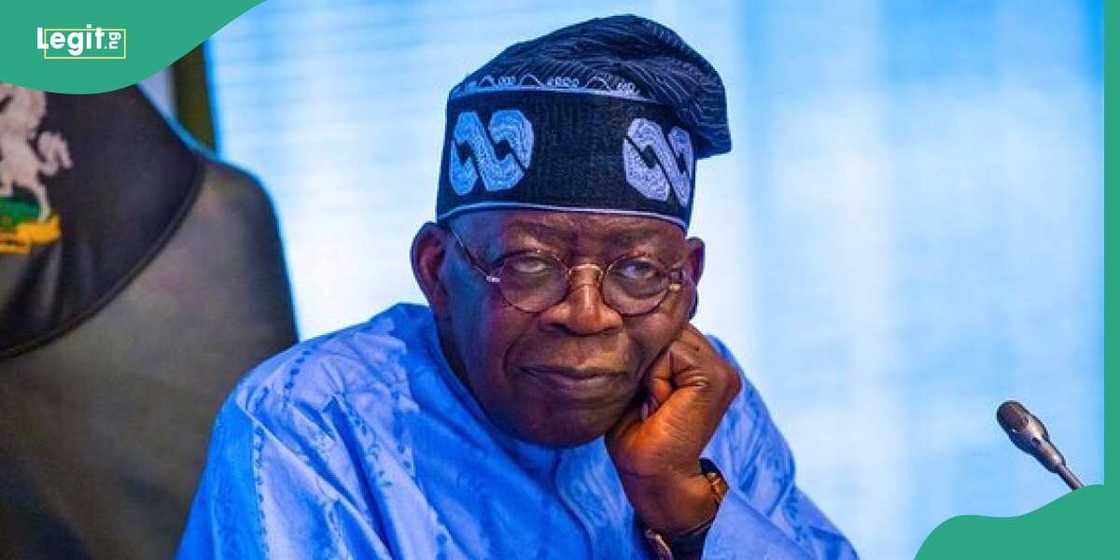Nigeria’s Debt Service Gulps N8.93 Trillion in 9 Months amid Reserves Growth
- The Nigerian government has spent about N8.93 trillion servicing debt in the first nine months of this year
- The amount is 61% of the N14.55 trillion revenue generated in the period under review
- Nigeria’s surging debt service, which stood at $6.2 billion in dollar terms, is pressuring government earnings, experts say
Legit.ng’s Pascal Oparada has reported on tech, energy, stocks, investment and the economy for over a decade.
The Nigerian government spent N8.93 trillion on debt servicing, an equivalent of $6.2 billion, in nine months.
The record represents 61% of the N14.55 trillion revenue generated in the review period.

Source: Facebook
Nigeria’s debt service exceeds revenue
According to the report, the figure exceeds quarterly and cumulative targets, showing the growing strain that debt service places on government finances.
The report showed that debt servicing costs were N2.26 trillion in the first quarter, N3.77 trillion in the second, and N2.89 trillion in Q3.
Each debt servicing surpassed the N20.01 trillion budgeted for service every quarter, while cumulative nine-month expenditure exceeded the N6.03 trillion projection for the period by almost 48%.
Nigeria’s quarterly earnings drop
The rise in debt cost came amid the underperformance of government revenue targets, relative to budget estimates.
The Nigerian government earned N14.55 trillion in the period under review, N19.4 trillion less than the expected revenue.
Every quarter, receipts totalled N3.58 trillion in the first quarter, N4.88 trillion in the second, and N6.08 trillion in the third.
Each quarter dropped below the government’s N6,646 trillion revenue target.
The disparity between revenue and debt obligations underscores Nigeria’s fiscal fragility when the country is struggling with inflation, currency devaluation, and weak oil earnings.
Non-oil earnings soar
Debt servicing already accounts for the largest share of the federal budget, leaving limited funding for infrastructure and social spending.
According to a report by Daily Sun, the debt servicing report showed a mixed performance across revenue streams, with non-oil revenue contributing N3.65 trillion in the review period against the projected N2.67 trillion.
The amount has already surpassed the N3.56 trillion projected for the year.
The report showed that non-oil earnings stood at N985.07 billion in Q1, N1.30 trillion in Q2, and N1.35 trillion in Q3.
Each figure exceeded the N892.44 trillion budgeted quarterly, showing improved tax administration and stronger collections from company income tax, VAT, and customs duties.
Oil revenues under threat
In contrast, oil revenues dropped, showing persistent challenges in Nigeria’s main export sector.
The government earned N4.63 trillion from oil between January and September, relative to the targeted N6.13 trillion.
The figure is below the N8.17 trillion projected for the year.
Quarterly oil revenues accounted for N1.39 trillion in the first quarter, N1.31 trillion in Q2, and N1.92 trillion in Q3, underperforming the N2.04 trillion target.
IMF, World Bank worry for Nigeria’s future
Experts blamed the shortfall on low crude production, pipeline vandalism, and oil theft.
They say that Nigeria’s rising debt service burden has remained a concern for policymakers and investors.
Global lending bodies, the International Monetary Fund (IMF) and the World Bank, have warned that Nigeria’s fiscal position is unsustainable without significant reforms to boost revenue and control spending.
With debt servicing gulping more revenues, Nigeria faces difficult trade-offs between meeting its obligations and funding critical infrastructure and social programmes.

Source: Facebook
The Nigerian government has sought to increase non-oil revenue via tax reforms and wider adoption of tech in revenue collection.
DMO releases list of Nigeria's creditors
Legit.ng earlier reported that Nigeria’s public debt stood at $97.23 billion or N149.39 trillion as of the end of March 2025.
This is according to the latest data from the Debt Management Office (DMO), which covers the nation’s debt up to March 31, 2025.
The latest figure represents a 22.8% yearly growth amounting to N27.72 trillion, up from the N121.67 trillion recorded as of March 31, 2024.
Source: Legit.ng





